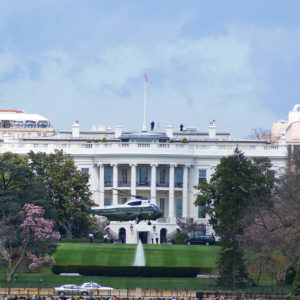Liar. Crook. Con artist. Lunatic. Misogynist. Bigot. Maniac. These are some of the names presidential candidates have called one another this year. And we’re still two months from Election Day.
Rough hazing of presidential contenders is nothing new. Candidates throughout history — Thomas Jefferson, Andrew Jackson, Abraham Lincoln, Franklin Roosevelt and Ronald Reagan — all took hard knocks. National politics has always been a brutal business, clearly not fit for the faint of heart or maybe even the sound of mind.
What’s new, though, is the universality of attack politics and the proliferation of attackers.
At one time, only candidates and their campaigns did the attacking, and they were often reluctant to go too far for fear of looking nasty. But now, the battlefield is crowded with more and more combatants, from less restrained party committees to less inhibited media commentators to less policed Super PACs.
Deceptions, slurs and innuendos — in addition to valid, fact-based attacks — are ubiquitous in today’s world of endless cable conjecture and online chatter. Attacks are no longer meant to just take votes away from the opposition. They’re increasingly aimed at destroying the opponent’s legitimacy and credibility. Worst for the country, they’re also meant to impair the opposition’s ability to govern should they win.
Presidential elections are meat grinders. To get to the White House, you have to throw yourself into a pulverizing contraption fueled by cynicism and malice. Everybody gets to press the buttons and pull the levers — from average citizens and professional journalists to ambitious adversaries and online character assassins.
It’s time to take stock of how our political system is operating and to ponder a deadly serious question: Will the next president be so badly damaged after the election that he or she won’t be able to govern?
The next president must have a vision and the standing to carry it out. The new commander in chief will need to span deep divides, build complex coalitions and unite warring factions — at home and abroad. The next president may, at some point, need the moral authority to summon us to war or to ask for national sacrifice. After this bedeviled election, how will the next president be able to do these things?
Look at the two major-party nominees. Most Americans dislike both of them.
The recent ABC New/Washington Post poll found that 59 percent of voters have an unfavorable view of Hillary Clinton, while 60 percent have a negative view of Donald Trump. Nearly two-thirds of voters surveyed by Quinnipiac University don’t think Clinton is honest – –and 71 percent don’t think Trump is level headed. Beyond that, 60 percent say Clinton doesn’t believe she has to play by the rules and 59 percent say Trump appeals to bigotry. A Pew Research Center survey taken in June showed that four in 10 voters believe neither would make a good president.
One recent survey by Public Policy Polling, a Democratic outfit, even found that 41 percent of voters have a higher opinion of mosquitoes than they do of Trump.
Fair or not, both Clinton and Trump stir intense feelings and bring out the hatred of their enemies. Neither can win in November based on positive qualities. They plan on winning by jacking up their opponent’s negatives even higher.
While this year’s nomination contest was a nasty, raucous affair, the general election is proving to be worse. The final weeks will be fraught with added opportunity for malevolence. Vast amounts of money will be spent on vicious attacks. Social media will be packed with allegations and smears. Who knows what else the candidates, their parties and Super PAC friends will do.
It is a campaign with all the charm of a gangland slaying. The winner will be the one who crawls across the finish line first — debased and exhausted.
How a new president is supposed to lead the nation after all this, heaven only knows.

